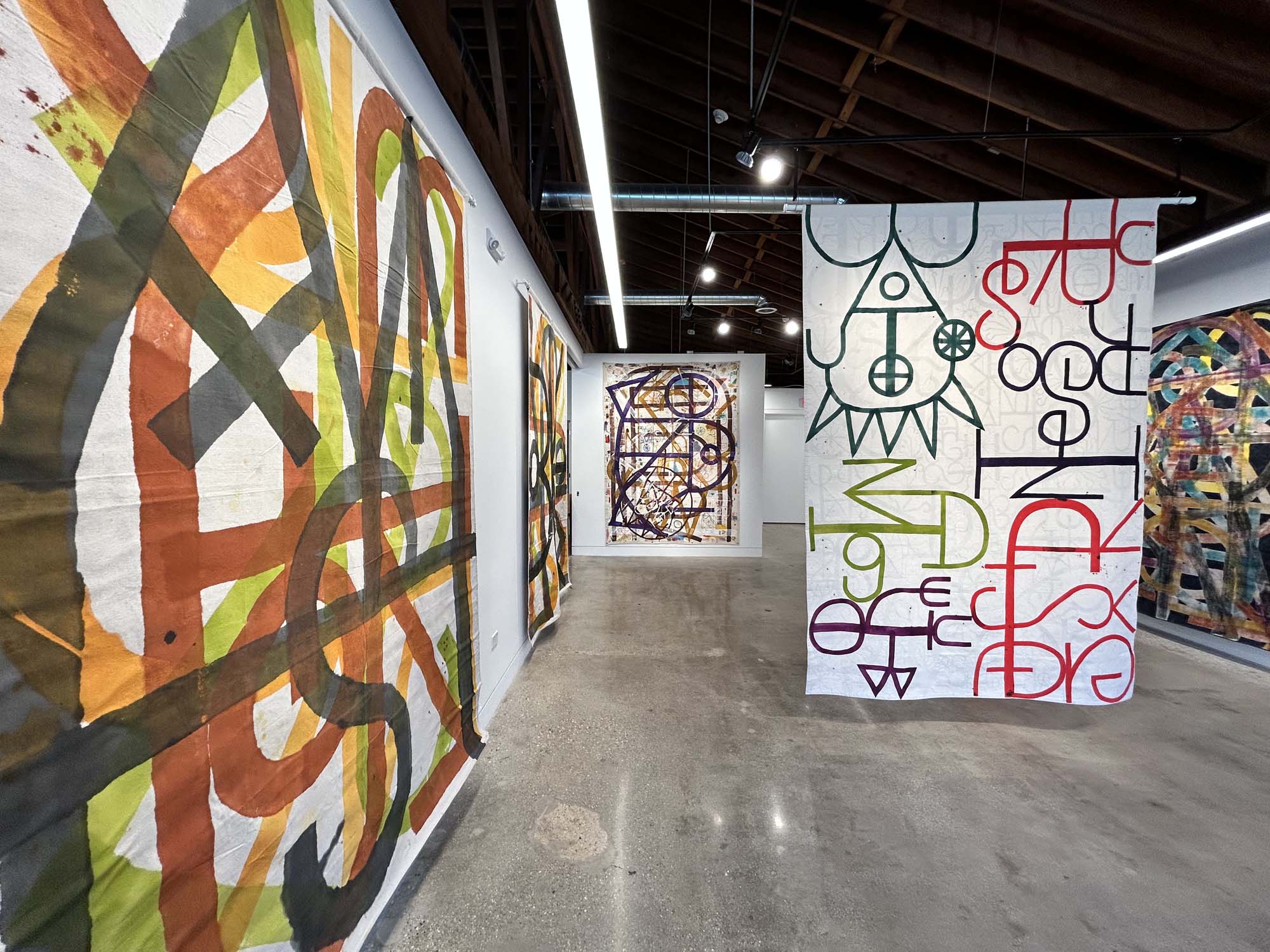(northern) Western Exhibitions, Skokie

(northern) Western Exhibitions is thrilled to present a solo show devoted to Elijah Burgher’s works depicting sigils. Burgher’s paintings, drawings and prints sit at the intersections of representation and abstraction, image and language, and the real and imagined. Drawing from the occult, mythology, daily life and ancient history, he has created an intimate code of symbolism that traces the personal and cultural dynamics of desire, belief and subcultural formation. A List of Wishes will begin on Sunday, October 20 during regular gallery hours, 12-4pm at our location in Skokie, (northern) Western Exhibitions, 7933 N Lincoln Ave., Skokie, IL. Gallery hours are Thu-Sat, 12-6pm, Sun 12-4pm.
William S. Burroughs wrote, “It is to be remembered that all art is magical in origin – music, sculpture, writing, painting – and by magical I mean intended to produce very definite results. Paintings were originally formulae to make what is painted happen.” For more than fifteen years, Burgher has taken up Burroughs’ statement as both subject matter and thought experiment in his studio practice. A List of Wishes gathers works by the artist that depict sigils–graphic ciphers of power and desire that are employed in ritual magick settings. Drawn from a prolific period for Burgher that straddles his time in Chicago and Berlin, the works range from large acrylic paintings on canvas drop cloths to meticulously wrought colored pencil drawings and ghostly pressure prints in which his carefully delineated sigils fracture into fragments of color–or, to use another phrase of Burroughs’, “word and image dust.”
Sigils are pictorial symbols to which magical powers are imputed, such as demonic seals in medieval grimoires and Dutch hex signs. In his work, however, Burgher cites early twentieth century British artist and occultist, Austin Osman Spare, who invented a method for creating sigils by recombining the letters that spell out a given wish into a newly invented and ultimately illegible glyph–in other words, a magical monogram of desire. Spare’s system offers Burgher not only an elegant method for secreting specific intentions in abstract form but summoning contexts both sexual and subcultural. The elder artist believed the most expedient way to cast a sigil’s spell is to visualize it during the ego-shattering moment of orgasm; and his ideas were taken up by contemporary countercultural occult movements such as Chaos Magick and Genesis P-Orridge’s Temple of Psychic Youth. Moreover, Spare’s mutilation of language dovetails with the literary techniques of Burroughs’ cut-up method and Surrealist experiments with asemic writing, both of which were intended to subvert language itself as a medium of power. Burgher maps these connections amongst art historical, esoteric, literary and queer contexts in his engagement with sigils through drawing and painting.
In Gallery 1, eight of Burgher’s large paintings on canvas drop cloths will envelop viewers in a riot of line and color. These works are made on the floor of the studio with paint rollers, referencing both ceremonial magic and the history of 20th century abstraction. When exhibited, the paintings have generally been suspended from the ceiling and away from the wall, partitioning the space and creating a soft, portable architecture while also alluding to mazes and labyrinths; and other times on the floor, suggesting carpets and gardens. Here they will be hung densely and hugging the wall, calling to mind a temple. A selection of Burgher’s works on paper feature in Gallery 2. The composition of Hex Centrifuge combines Bauhaus-era abstraction with Snakes & Ladders game boards and a tromp l’oeil semen stain. Burgher’s geometry dissolves in Eden Flag (Meet Murder My Angel) into haphazard mark-making, mapping the revenge of impulse on system. His prints, on the other hand, all uniquely created from a matrix of stencils using the imperfect and unpredictable process of pressure printing, dissolve the precision of his drawings in operations of chance and recombination that, at their most extreme, result in fields of broken color that evoke shattered stained glass.
Elijah Burgher (1978, Kingston, NY) was featured in the 2014 Whitney Biennial, the 2014 Gwangju Biennial (as part of AA Bronson’s “House of Shame”), and The Temptation of AA Bronson at the Witte de With Center for Contemporary Art, Rotterdam; had a solo show at Ivan Gallery in Romania in 2018; and was recently included in shows at Centre d’Art Contemporain in Geneva, Switzerland The Drawing Center in New York City, LAXART in Los Angeles and the Des Moines Art Center in Iowa. He has been a resident at the Skowhegan School of Painting and Sculpture and the Fire Island Artist Residency. His work has been discussed in The New York Times, Art in America, Frieze, ArtReview, Artforum.com and was included in VITAMIN D2, the hardcover survey of contemporary drawing. He received a MFA from the School of the Art Institute, Chicago and a BA from Sarah Lawrence College in Bronxville, NY. Elijah Burgher is represented by Western Exhibitions in Chicago, Ivan Gallery in Bucharest, and P.P.O.W in New York City. He lives and works in Berlin.
Download a preview